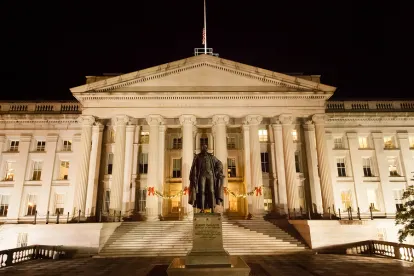On 9 July 2021, President Biden issued an executive order (EO)1 tasking the Treasury Department, in combination with the Department of Justice (DOJ), the Department of Labor (DOL), and the Federal Trade Commission, with “promoting competition” in the United States labor market. In response, the Department of Treasury recently issued a report titled The State of the Labor Market (Treasury Report) on 7 March 2022. Employers should take note that the EO and the Treasury Report reflect a meaningful shift in the legal landscape for post-employment noncompetition agreements. This alert provides an analysis of the Treasury Report.
In addition, please join the K&L Gates Global Employer Solutions webinar on 30 March 2022. The webinar will cover the latest developments regarding noncompetition agreements, including the Treasury Report, and strategies to retain key employees in the United States, the United Kingdom and Australia.2
THE TREASURY REPORT
In addition to providing a primer on labor economics, the Treasury Report analyzes the current labor market landscape and leverages decades’ worth of economic research to identify employment practices that are believed to be restraining competition. The Treasury Report concludes with proposed legislation designed to promote competition, prevent antitrust activity, and increase employee bargaining power.
Three days after the Treasury Report was released, the Antitrust Division of the DOJ and DOL issued a Memorandum of Understanding (Joint Memo). The Joint Memo highlights the DOL and DOJ’s interests in preventing anticompetitive conduct that harms American workers, including “collusive behavior” and “business models designed to evade legal accountability.” To further this shared goal, the DOL and DOJ intend to share information, cross-train agency staff on exploitative employment practices, and create a coordinated enforcement program.
POTENTIAL IMPACTS
Importantly, neither of these agency documents is legally binding and employers are not required to change their current approach to restrictive covenants to comply with the agencies’ viewpoints. However, these reports reflect a legal landscape that is becoming increasingly hostile to post-employment noncompetition agreements.3 Over the last year, the DOJ has pursued criminal charges against companies that allegedly violated antitrust laws with their no-poaching and wage-fixing non-compete agreements. Meanwhile, a growing number of states are adopting laws to govern the nature, scope and character of permissible noncompetition agreements, while including unprecedented penalty and enforcement provisions.4
For example, Washington D.C.’s law that effectively bans most noncompetition agreements with employees is scheduled to become effective on 1 October 2022.5 Penalties for violations range from US$500 to US$3,000 per affected employee, depending on the violation, and employers may also be subject to penalties from the D.C. mayor and attorney general ranging from US$350 to US$1,000 per violation.6 In Illinois, the state attorney general may now impose a civil penalty on employers who violate the Illinois Freedom to Work Act of US$5,000 per violation or US$10,000 for each repeat violation within a 5-year period.7 California, where noncompetition agreements are prohibited, now subjects employers to civil liability of up to US$5,000 for each employment contract entered into that contains a noncompetition provision meant to be enforced in California.8 And as of 1 March 2022, a violation of Colorado’s noncompetition statute is a class 2 misdemeanor criminal offense.9
In light of this evolving landscape, and in the absence of federal noncompetition legislation setting a uniform national standard, employers who require employees to execute restrictive covenant agreements should continually evaluate their compliance with state laws. At a minimum, restrictive covenant agreements should be no broader than necessary to protect the organization’s business interests and employers should not rely on courts to modify overbroad provisions. Further, where use of a noncompetition or other restrictive covenant agreements is limited in whole or in part by state law, employers should consider strengthening workplace policies that address confidentiality and noninterference to protect trade secrets and proprietary information.
For more information on the enforceability of noncompetition and other restrictive covenant agreements in this ever-changing environment, please contact a member of the K&L Gates Labor, Employment and Workplace Safety (LEWS) team and please join the K&L Gates Global Employer Solutions webinar on 30 March 2022.






 />i
/>i

